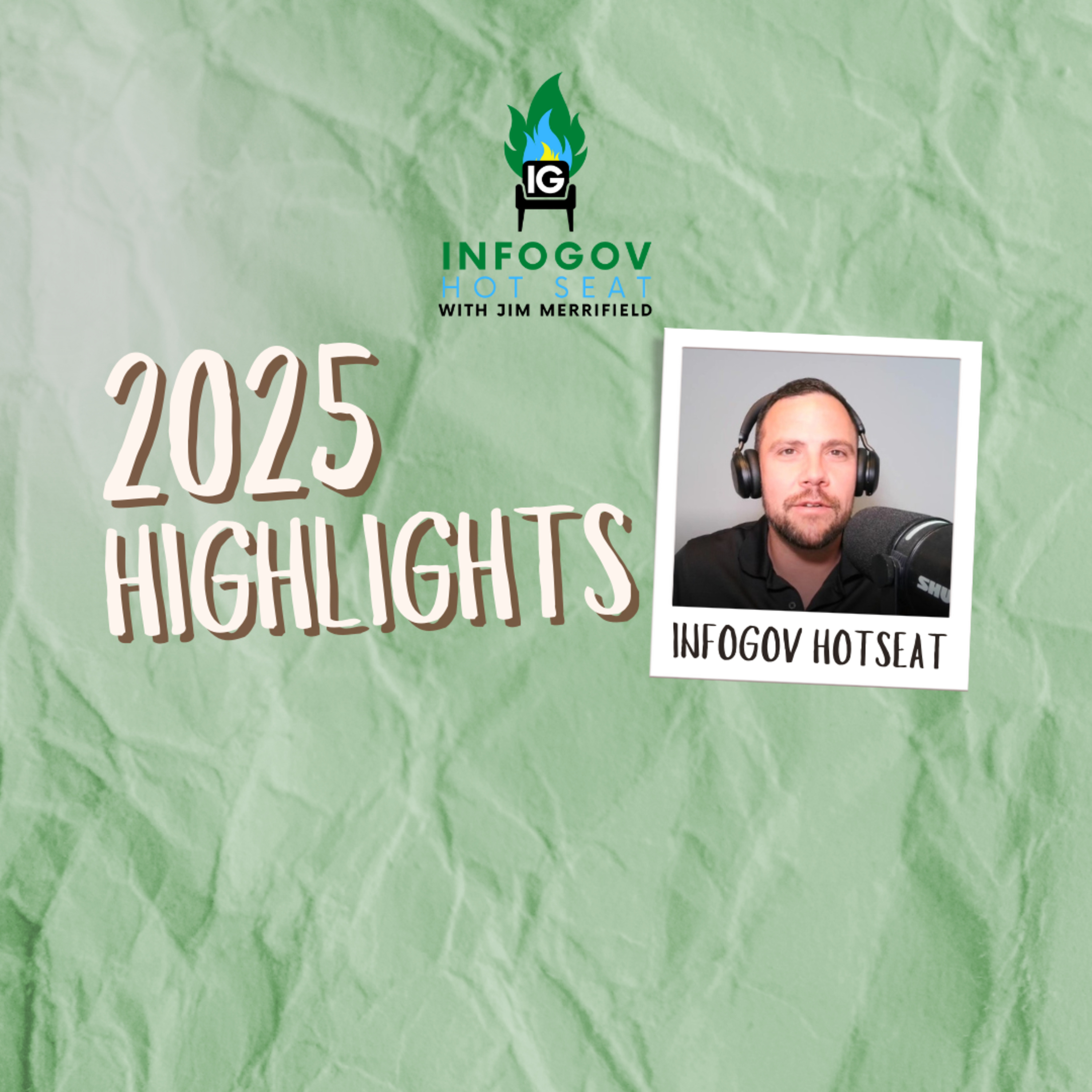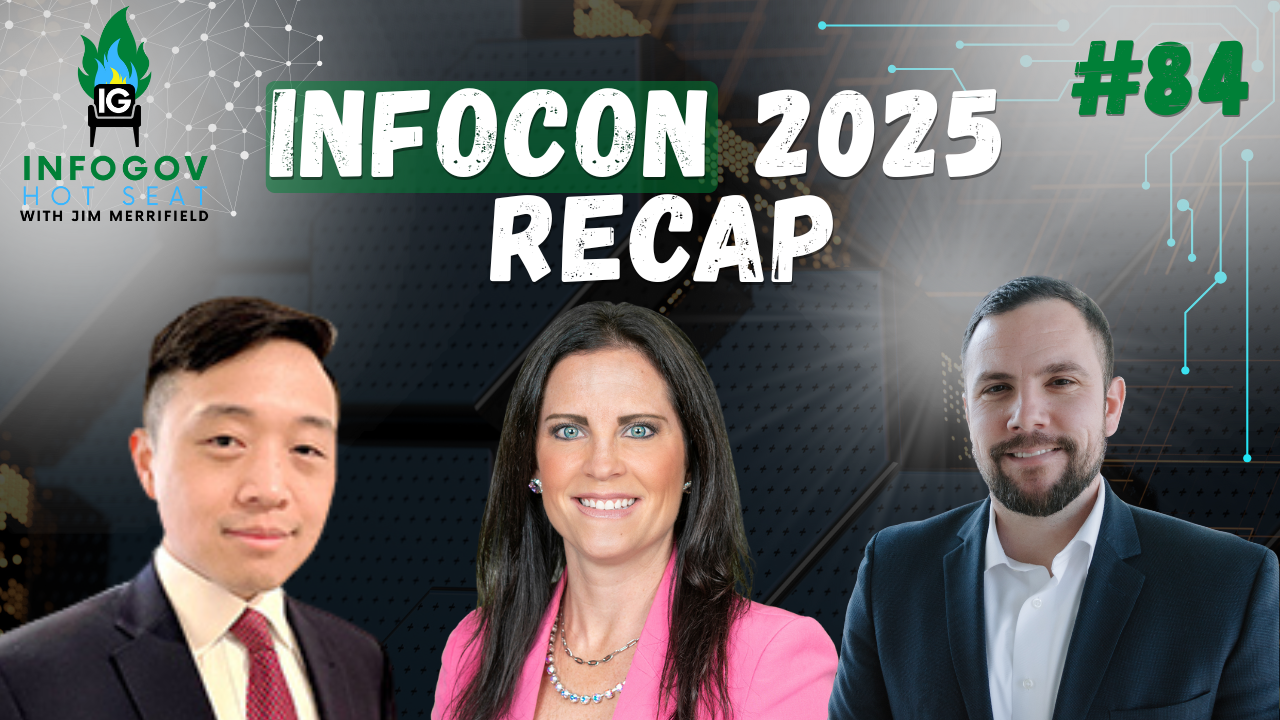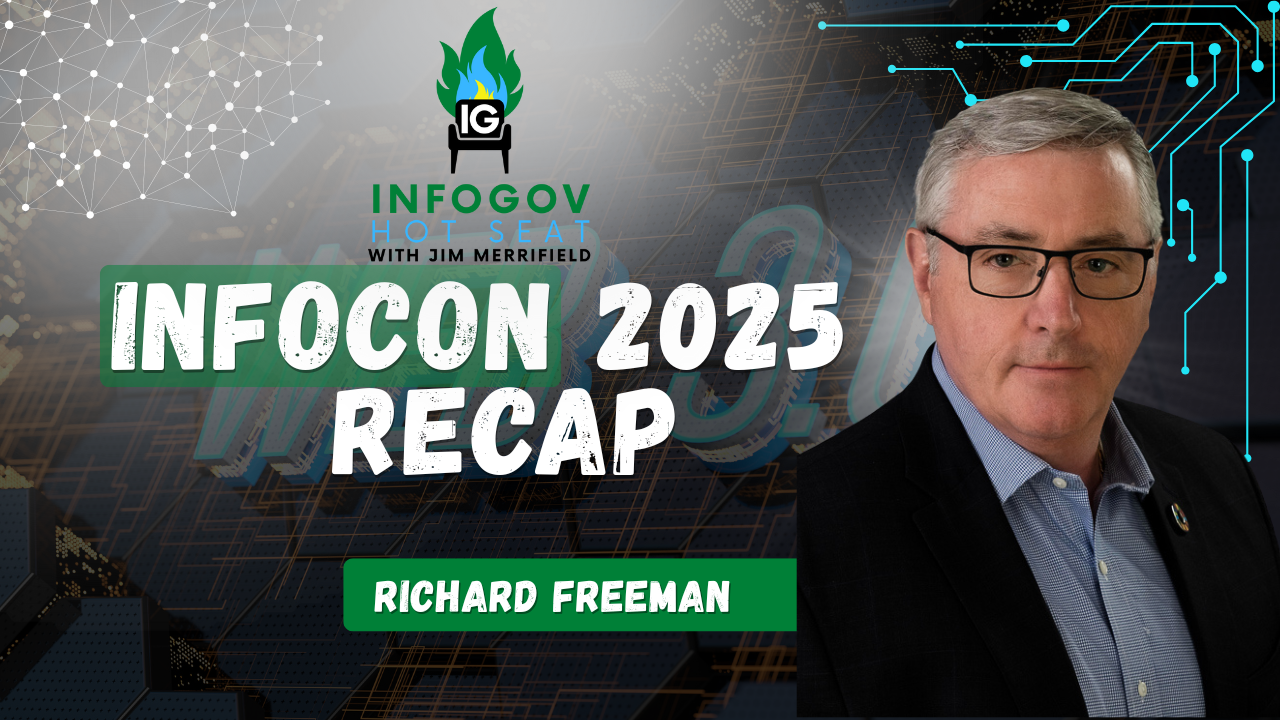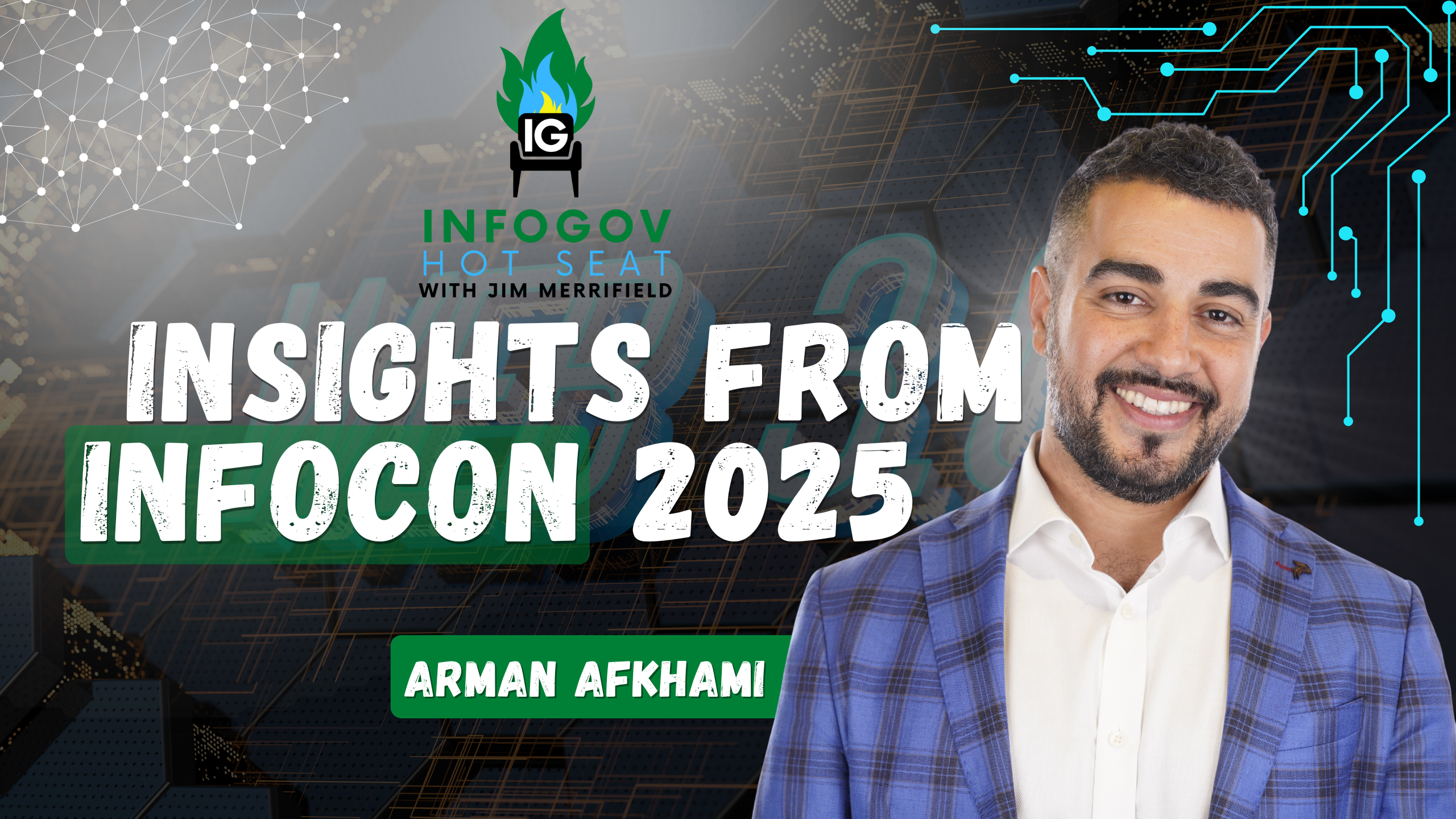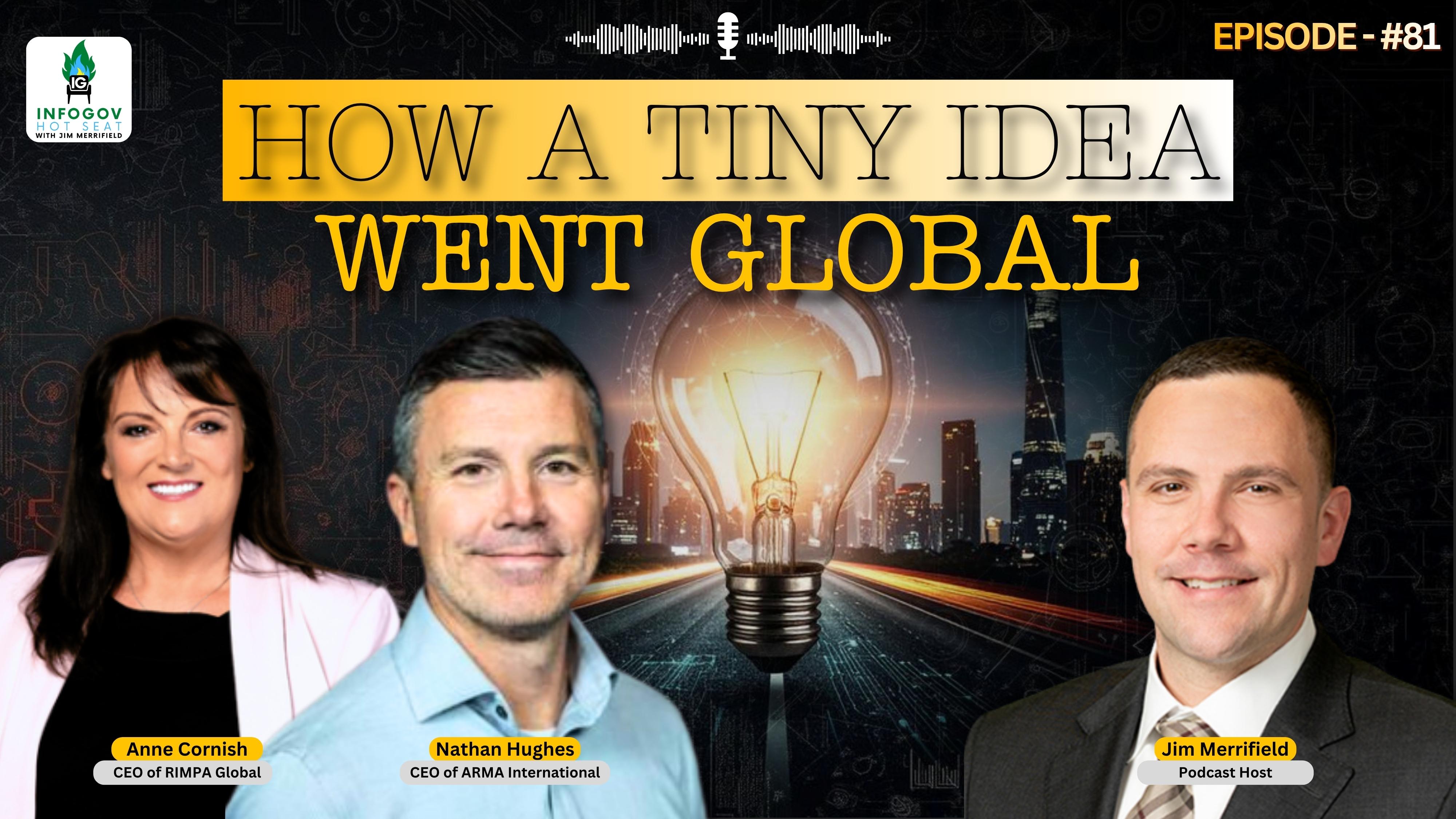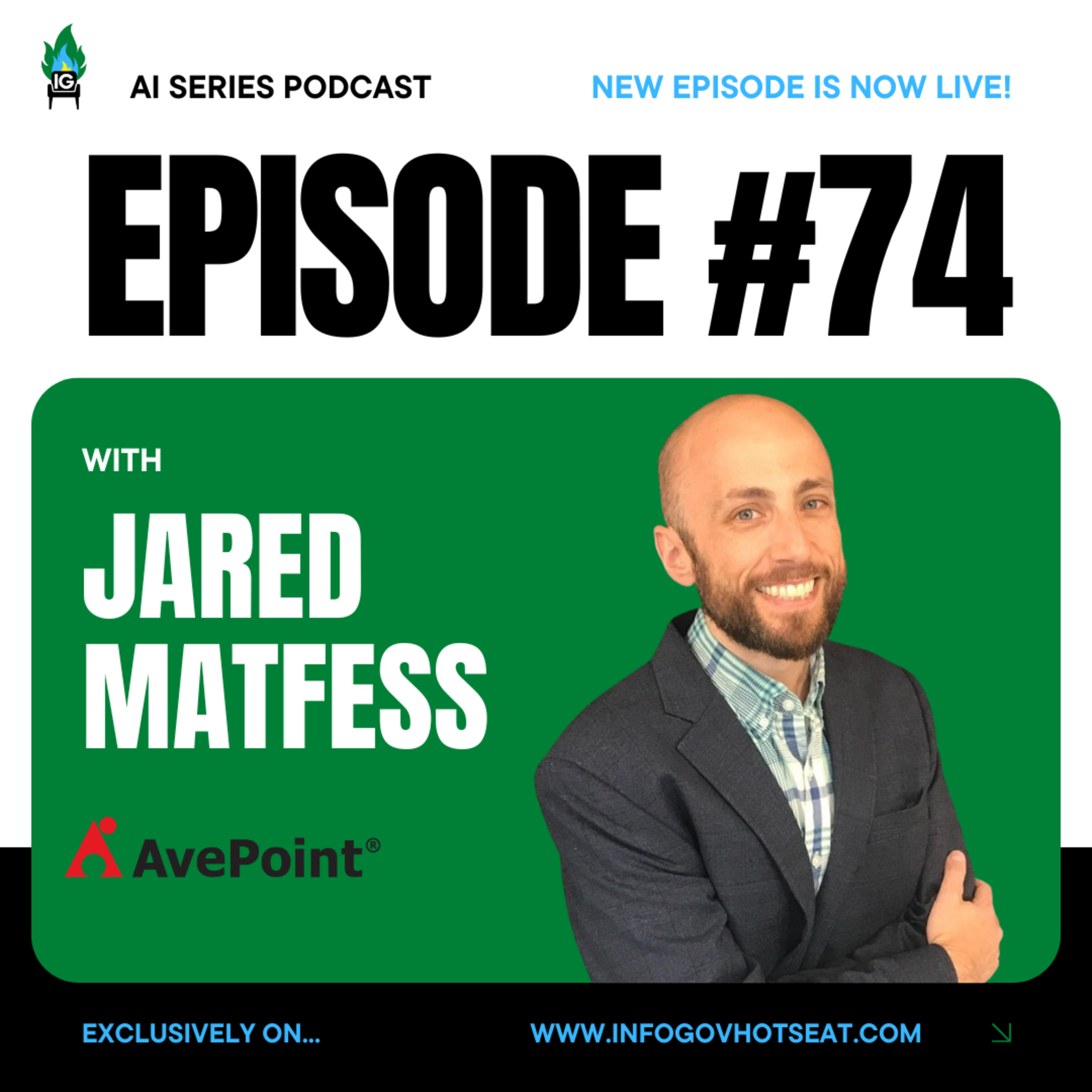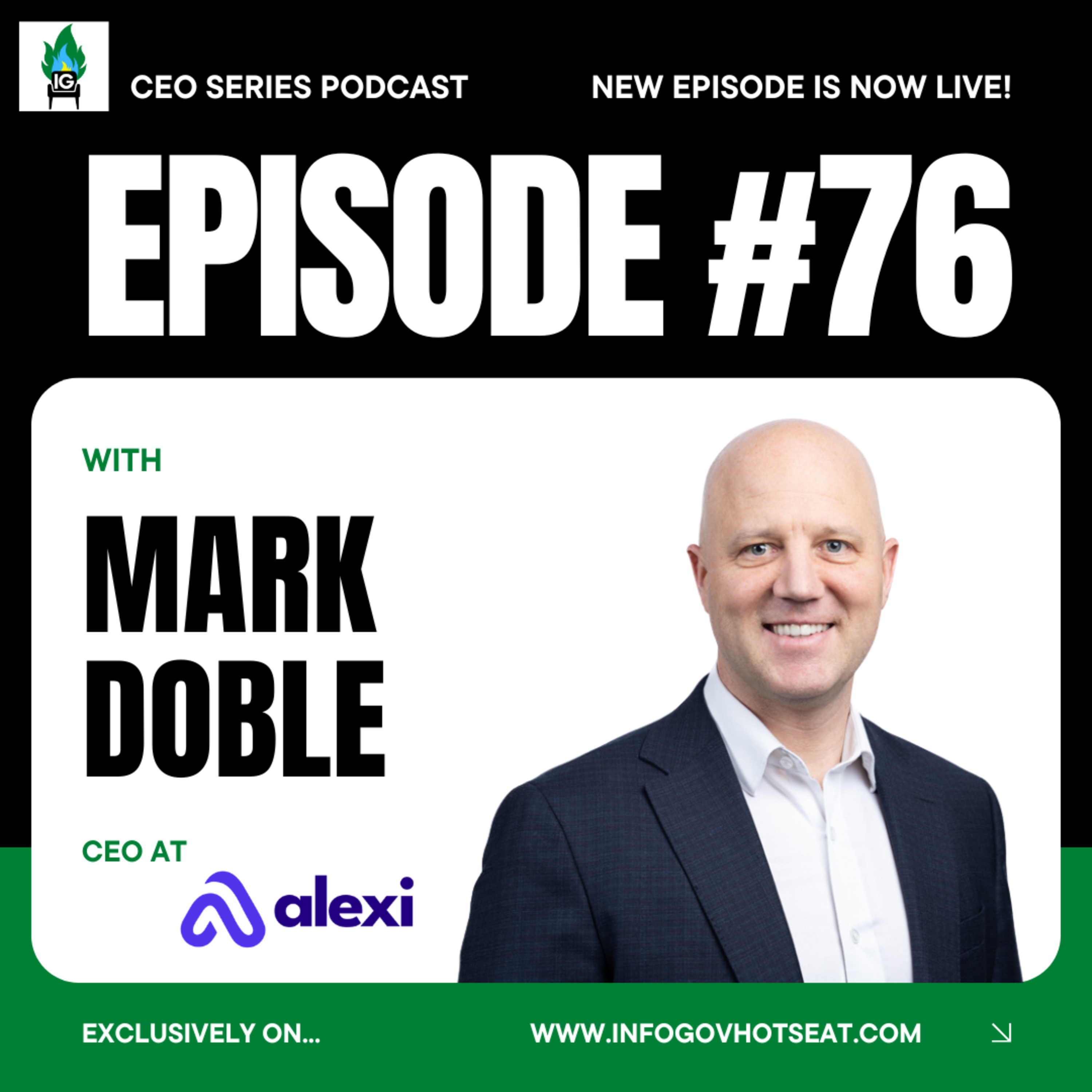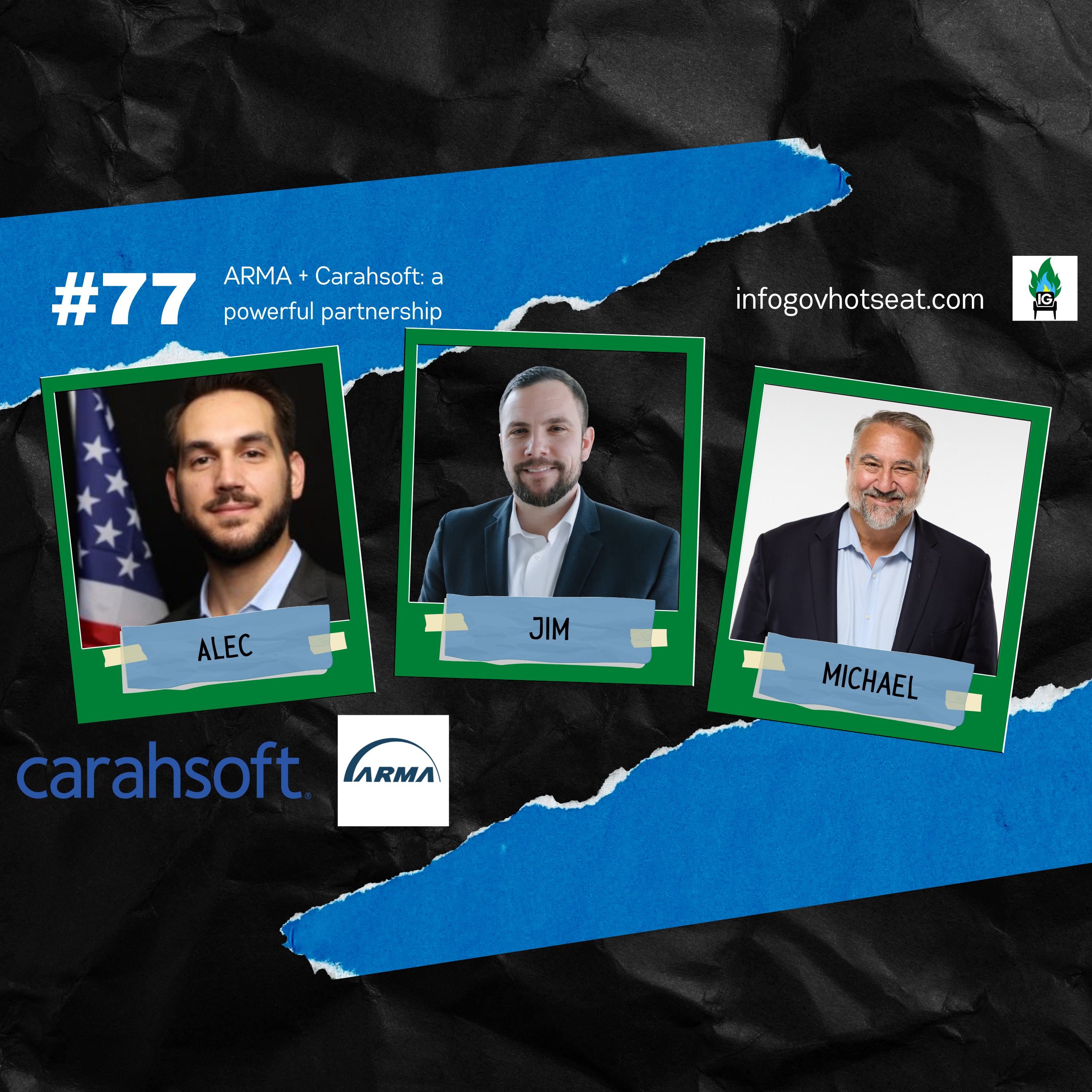IGHS22 - Joe Shepley, Alvarez & Marsal
In this conversation, Jim Merrifield interviews Joe Shepley, a consultant at Alvarez & Marcell, about his role in information risk and governance. They discuss unconventional advice for clients, the importance of addressing legacy data, advice for a younger self, funny moments in consulting, and the essential skills every consultant should have. They also touch on the future of information governance and the increasing importance of data cleanup and compliance.
Takeaways
- Addressing legacy data is crucial for reducing risk and improving information governance.
- Consultants should focus on writing skills, critical thinking, and emotional intelligence.
- The future of information governance will involve increased regulatory enforcement and advancements in AI technology.
- The human element, including empathy and care for clients, is a key differentiator for consultants.
Chapters
00:00Introduction and Background
01:16Unconventional Advice for Clients
03:19Addressing Legacy Data
04:31Advice for Younger Self
06:14Funny or Unexpected Moment in Consulting
08:50Fictional Character as a Consultant
11:14Essential Skills for Consultants
15:35The Future of Information Governance
19:53Conclusion
Jim Merrifield (00:00.252)
Well hello and welcome to the InfoGov hot seat. I'm your host Jim Merrifield and with me today is Joe Shepley at Alvarez & Marsal. Welcome Joe.
Joe Shepley (00:09.869)
Jim, good to be here, man. Thanks for having me on.
Jim Merrifield (00:12.172)
Yeah, anytime Joe. I'm glad you took the time out to be on the hot seat. Can you start us off and give us a brief introduction of your role, how long you've been with your current company and one fun fact about yourself.
Joe Shepley (00:26.402)
Yeah, so I've been involved in information governance Jim for, I mean, gosh, we've known each other over a decade, but for like 23, 24 years. You know, I was in industry a bit in IT for eight or nine years, I was at a boutique consulting firm as a partner for about 10, 12 years. And then I was at my last firm four years, and I just came to Alvarez and Marsal on November 1st. So not very long yet. And I've been brought on to build out the information risk and governance practice. So basically how do clients figure out what data they have, get rid of it when they don't need it.
to support eDiscovery, to support privacy, to support cyber, to support data analytics, support restructuring, you know, whatever it might be. So if you've got data and it's got risk, you know, my team, the whole goal is like, how long should we have it? Let's get rid of it, we don't need it. Let's reduce that risk, increase the value. All the stuff we've been trying to do for like forever.
Jim Merrifield (01:16.132)
Yeah, no, for sure. No, I know you've been in this role, you've been a consultant for quite a while, so I have tons of experience, but before we get into that, you forgot the fun fact, Joe, you know, come on. Ha ha.
Joe Shepley (01:23.35)
Oh wait, am I supposed to do the fun fact? Fun fact. That is the fun fact, no. So fun fact is that this wasn't what I was supposed to do. So I have my PhD in history of Christianity and Judaism. So I was gonna be professor of religious studies, studied ancient scriptural interpretation, and then the fame, the glory just got a little too much, and so I thought I'd go into the more slower paced world of management consulting globally. So.
Jim Merrifield (01:46.86)
Love it, love it. Fun fact about Joe Shepley you know, PhD. I didn't know, I thought you went for a PhD in like information governance or something, you know, like you really wanted to do this stuff.
Joe Shepley (01:57.138)
I did do a lot of taxonomy and that's the I have some blog posts about like taxonomy for like divinity school, but it's
Jim Merrifield (02:05.324)
Now that's interesting, that's cool. So let's talk about your consulting, right? So as a consultant, can you share one of the most unconventional pieces of advice that you'd give a client that had a great outcome? Crazy question, but I figured I'd ask you a crazy question.
Joe Shepley (02:19.051)
Uhhh...
No. Yeah. So I think I've got some clients where, and it's unconventional, cause as a consultant, right, we're supposed to always take whatever work they give us. And I think for me, the unconventional advice is sometimes they've just gotten wound up and they've decided they really need something that they don't need. And so they, they're always shocked when you say, well, actually, I think that's actually not something you should do. I don't think you need to do anything. And they look at you like you're crazy. For me, the big one right now is when I'm working with a client on data cleanup,
and they wanna fix the go-forward, because they think, well, gosh, if we don't fix the go-forward, like, we'll just be in this mess again. But meanwhile, they've got a dozen petabytes or dozens or hundreds of petabytes, and they think that, oh, well, we'll fix the go-forward, and they haven't really thought about the legacy. And my thing is, forget the go-forward. Like, if you have 100 petabytes and you do a terabyte a day, you're only fixing a terabyte a day, you're changing everybody's behavior, you're like...
everybody's pissed off, you're trying to like change their job. And you've left this hundred petabytes there where all the risk is. So my big thing is like address the, the legacy, forget about the go forward, don't even tell people you're doing it, don't change what they're doing. And hopefully like in two years, three years, when you're done with the rock pile, AI is so good that like nobody needs to do anything anyway. It's just like the robots are going to take care of it. So people get shocked by that. Cause I think well, shouldn't you fix the mess going forward? So like, yeah, it's like, that's the small part. So I always say like, forget that let's clean up the old stuff.
get all that risk out and then fingers crossed that it just kind of the robots do it, you know?
Jim Merrifield (03:54.38)
Yeah, that's the hope, right? I mean, yeah. And people tend to hear, not care too much about the past so much, but they really care about what they're dealing with now, the information they're handling now, because it affects the clients they're serving and things like that, right? So it's an easier sell. I like that. Good advice, good advice. So let me ask you another question. If you could go back in time, right? The young Joe Shepley well, you're still young, but.
Joe Shepley (03:56.158)
Wow, I look really close.
Jim Merrifield (04:23.836)
and give yourself one piece of advice at the start of your consulting career. Where would it be?
Joe Shepley (04:31.106)
You know, I'm a little bit of an A-type personality. You know, my wife has a label maker and I can't believe I didn't have one, but I'm very like, I gotta have my stuff planned out. And I think I would, and I'm a, I like to just like get stuff done and I'm really high energy. I think I would tell my younger self to just like do today's work today and don't do tomorrow's work today. I think I spent a lot of time pre-COVID, COVID kind of changes. Like if I was done with this week's work, I'd just like start doing next week's work. And...
kind of not say, you know what, that can be picked up Monday. And so why don't you spend, you have a little extra time, that's a gift. Spend it with your family or your friends or your significant other and be more ready next week when the time is there, you know, when the time comes, you have to do it. So I think for sure I'd give my younger self the advice, like what's today's work and what's tomorrow's work and let's just do today's work today and let's put off for tomorrow the work that we need to do tomorrow. You know, and that's a moving target, right? But I think I would be, I probably would have spent a lot more time.
Like that could wait till next week, you know.
Jim Merrifield (05:31.896)
Yeah, hey, it's important, right, to have a work-life balance, because burnout is inevitable, right? We can.
Joe Shepley (05:39.278)
especially work from home, it's really hard. It's like, this is my work in my life is that. And so it's really, really challenging, but it's become even more important, you know?
Jim Merrifield (05:47.564)
Yeah, for sure. I mean, you and I, we could probably work 24 hours a day and still have more to do the next day. So I think that's great advice. Spend some time with family, have work-life balance, and everything else falls into place. So good. So can you share a funny or unexpected moment from your consulting experience that has stuck with you?
Joe Shepley (06:14.354)
Yeah, so I'll give a shout out to one of my favorite people to work with Jeff Phillips, who I worked with for many years. We started working together in 2008. This probably around 2009, we got a gig at a Department of Transportation for a pretty big state and they are doing a taxonomy. And so we were meeting and it was in a state capital that was not the major, it's not the major city in this particular state. So we had about a two hour drive to get there.
from like where you would fly in and we were meeting with every single department in the Department of Transportation talking to everybody what are your documents that you have they had like old school big ECM system for drawings and all that stuff and it was just a mess there was no metadata there was nothing so we were like going to give them the scheme for that and so it was like racked and stacked every time we went there you know nine in the morning to five in the afternoon no breaks you know interview for like four days in a row
And so we get there and it was like planes trains and automobile day. And we get there in about 8:15, figuring we have 45 minutes to like decompress all this kind of stuff. So first of all, everything is, there's no free food or coffee. It's all coin operated. We have no cash. So like we didn't stop and get coffee. So we have no coffee. There's no water bottles or anything. You can't buy anything in the vending machine without like quarters. So we have no water. So we get like paper cups and getting water.
at like 8:17 the first interview person comes into the room to work in the room with us ahead of the interview. So we can't like relax. And that happened all four days. Like if you had a break, people would show up early and like do work in the room with you. So we had no time to ourselves like decompress to like complain or anything. And there was like no food. It was it was and it was a cool project. Because it was cool to do a taxonomy for it was my first one.
for Department of Transportation, that was pretty big. And like you're saving lives, right? If they can't find drawings about a bridge and the bridge collapses, like that's bad. So not, right? So like helping them do that is really cool. It was like, but boy, it was like, we had no, it was such a weird culture. Like who shows up early for a meeting and sits there with their consultants silently so we can't like talk or like passing notes. Anyway, that was very weird. Never happened before or since ever.
Jim Merrifield (08:14.949)
Yeah, I'd say.
Jim Merrifield (08:31.212)
Oh my goodness. Yeah, no, that's bizarre. It'd be your first experience too, right? So.
Joe Shepley (08:37.698)
So if you're listening, don't do that when you have consultants. Give them a few minutes to like relax and decompress and they'll be much happier. They'll have a better work-life balance. You'll get better work out of them.
Jim Merrifield (08:45.916)
There you go, right? It's not like zoom where you can just shut the camera off and just they are decompress, right? Yeah, for sure. So here's another one in your opinion, which fictional character from books or movies? Would make an excellent consultant and why?
Joe Shepley (08:50.806)
Oh, it's like sitting right there.
Joe Shepley (09:06.986)
Well, so there's like the obvious answers of like, you know, like MacGyver, right? Cause I sort of like half the time my work is, I'm trying not to be MacGruber, Saturday Night Live guy just blows everything up. But half the time, like at least the stuff that I'm doing, there's like received wisdom that hasn't worked. Like if the received wisdom worked, I wouldn't have a job right now cause we'd all be getting rid of our data, but we're not. And so I feel like it's very MacGyvery, it's very like.
You come in with a series of good practices, stuff that you've seen work and not work. And in general, maybe it's a hospital, so I've done it before for a hospital. But I'll tell you, every time, Jim, I feel like it's duct tape and baling wire. This is the first time that people are really doing it. It's like California privacy laws and the New York cyber laws and some HIPAA enforcement stuff and FTC. People are finally taking it seriously. The tech's getting good enough that you're not doing a terabyte a day. Like...
or just like die. It's like watching paint dry. It's like, it's all coming together. But so it's like, we're inventing it, right? So it's like, there hasn't ever really been a fortune 1000 company that I've ever seen that just a data cleanup at scale, consistently across structured and unstructured data. So to me, it feels like MacGyver would be a good one because, you know, he's just kind of in that situation and like he has his training, but like, I don't know what's gonna happen here. And so I have to get like a paperclip and duct tape and like, I don't know, you know.
a slipper and like he does whatever he's gonna do. I'd watch that much of it. So I feel like MacGyver is really, I feel like that all the time. I feel like I wish I was in one of these practices where it's like, oh, well this is the playbook and you just do it and you got a certification in cyber and you just go and it's a, you know, maybe it's not like that when you're really there. Maybe they feel like MacGyver, but I feel like, or like, you know, a tax audit. Okay, we just, you know, these are the steps we do. That's important, right? I'm not disparaging it. But like, I feel like my stuff, I-
You go in and you have a plan and it's like, you just gotta be flexible and like figure out what the heck we're gonna do here. So anyway.
Jim Merrifield (11:07.524)
Yeah, I agree with you 100%. Listen, I'd have MacGyver on my team. I wouldn't, I'd pay him good money to be on my team, pull him in, yeah, for sure. So here's another one, another question. If you had to choose three essential skills every consultant should have, but they can't be business related, what would they be?
Joe Shepley (11:14.626)
Absolutely.
Joe Shepley (11:27.266)
Yeah. Oh, well, I mean, writing. So you gotta be like a killer writer. And I don't mean like academic writing. I mean like everything from writing a 2000 word article that really crisply lays out like, I don't know, why accountability is important in information governance or like, you know, the results of like, hey, we're gonna look at you vis-a-vis, I don't know, some ISO standard and we looked at all the controls.
and this side, so that like 4000 word report, but how do you turn it also into like three bullet points that an executive can understand is really, really hard. And so like that writing I think is really, really important. And it's given my, given my, you know, he's got his background, these are probably not shocking skills. I also think the critical thinking, like in the traditional liberal arts critical thinking way. Like
Like if you could read a platonic dialogue and write a five paragraph essay on it and get in a B plus, like you could do all the things you need to do in terms of business is not harder than that. Like it just isn't. They're not in that way, right? Like, or like reading some ridiculous, like anthropology theory or sociology textbook from the 19th century. Like it's just, it just stretches your brain, right? It's like nothing you're gonna do is harder than a kettlebell workout.
Jim Merrifield (12:51.248)
Yeah.
Joe Shepley (12:52.098)
Right, so you can get your luggage up, right? That's why you do it. And I think the third thing would be cultivating emotional intelligence or empathy. I think that like expertise is super overrated. Everybody assumes that we're smart at this level. And there's always somebody smarter than you. There's always somebody who knows more than you. And most of my clients don't like care that I'm smart or what I know. They care that I care about them and I'll always have their back.
because it is MacGyver and so they can't trust that we're going to do, I mean half the time the statement of work we got to change it, we got to do something different, they got to trust that like, then really what they want us to do, can I curse on this or am I not?
Jim Merrifield (13:33.563)
I would.
Joe Shepley (13:34.29)
Can you get stuff done? But that's what they really care about. Is like, they don't really care like that I know some law or regulation or best practices. It's like, dude, are you gonna come in and like care about me and make sure that you never leave me and you're gonna treat me as a valued partnership and are you gonna get stuff done? Even if that stuff is different than what you thought you were getting paid to do or you thought we were gonna do. Cause I think there are consultants who are like, sorry, that was the plan.
Jim Merrifield (13:36.314)
There you go.
Joe Shepley (14:01.974)
they pull the plug or they can't hack and they can't do it a different way. And so the client doesn't get stuff done. And so they spend whatever they spend and then that engagement ends. And I bump into a lot of clients like that where we're the third or fourth or fifth person they called because other folks either didn't get stuff done or they walked away because it was too crazy, because they didn't wanna be MacGyver. And so I think that...
that ability to write really well in different contexts, critical thinking in that liberal arts sense, and then just like emotional, empathetic, kind of care and concern for your clients, that developing that ability. It's not just transactional, because I would take those three over anything that somebody might have.
Jim Merrifield (14:45.564)
Yeah, I think those are excellent points. I mean, especially with AI booming, right? The one thing that AI can't do is it can't care about your clients, right? I mean, it's not yet, right, exactly. It can maybe, you know, trick you into think that it actually cares about your clients, but that's where I think the human element is the differentiator, right? AI can get us pretty close to the way there, can think for us a little bit, but it can't really add that.
Joe Shepley (14:55.078)
Nice life. Give it a try. Ha ha ha.
Jim Merrifield (15:15.748)
that care and that feel for the client, right? That you really care about them. So yeah, I think that's excellent. So Joe, last question. When you look at the IG landscape in 2024, what are you thinking? What comes to your mind?
Joe Shepley (15:35.118)
So I think this is the year, the last two years, like the number of large organizations that it's not just the records manager in the basement, who's worried about data cleanup. It's like literally the board of directors. It's a chief information security officer saying that she's not gonna attest to New York DFS if we don't have a real solid plan for data cleanup and we're starting to do it. Or the...
I know California's been pushing enforcement, and we'll see if we get it in March, but that, the CPRA, I mean, you're saying on your website that I keep this stuff for as long as the lead lab, I get rid of it. Well, you're lying if you don't, either you have to say keep it forever, which is a good apply, or you have to say that I get rid of it according to my retention schedule, which you don't. So I think it's like an inflection point with what the regulators care about in enforcement, with what's really top of mind for consumers. And so I think it's like companies, it's like the jig is up.
And I think the tech is starting to get there because that's the other problem is like, you and I can build programs all day long and get the plan and risk rank, you know, data sources and all this kind of stuff. And it's like, if we can't help somebody clean up a hundred petabytes of data, what could this be? It's not gonna help them very much. And we gotta give them the scale of the way. And so I think partially why the regulatory enforcement is getting in there is that I think the regulators realize that it should be, you should be able to do this now.
like all we hear about is AI and the tools are really good. I mean, I'm so skeptical of technology and I hate software vendors. And I mean, I have friends with a lot of them, but you know what I mean? It's like, we've been told this since 2009. Like they were gonna point it at your share drive and they would tell you where the invoices were. Like we still don't have it, but we kind of do now. And I think it's just gonna go like that. I think every six months, it's just, there's gonna be, and it's gonna be all sorts of new tech. And so it's really cool.
But I think this is a year where I think the floodgates really start to open up with firms taking it seriously and figuring out how to adopt an IG approach, not just kicking the can down the road the way they have been. Because we're making too much money, we don't feel like fixing it, or we're not making enough money, we can't afford to fix it. I think we'll have some fines drop this year, because we started to see it last in 2023. I think you'll see some fines drop and it'll start to be like, all right, well, instead of spending $50 million with New York DFS.
Joe Shepley (17:56.886)
let's just fix it for five million or whatever it's gonna cost, right? And just do it. But I also feel like I say that every two years, like this is it, this is it. Federal rules of civil procedure change, they're gonna care. Oh, you know, like whatever. Target breach, everyone's gonna care. I feel like, you know, I feel like I keep saying it, but I do feel like this is different now. We'll have to see. This is recorded for posterity, so we could look in three years and you can look back and say like, now it's the same old story.
Jim Merrifield (18:24.528)
It's true. Listen, it depends who you talk to, right? Who cares about that? I mean Target cares about the Target breach, right? Sony cares about the Sony breach, right? And you know, law firm A cares about, you know, their breach. But no, it's definitely exciting times. I think, you know, with the AI that's come out this year, you know, I mean AI is really nothing new. It's just, you know, it reminds me of when shared drives or not shared drives, you know, file sharing platforms.
Joe Shepley (18:32.364)
No.
Jim Merrifield (18:53.668)
hit the market, you know, with one box and drop box and all those different companies. You know, now it's like AI. How do we, how do we control the data that we put in and how do we get the data out? And you know that what data do we put in into the system and where is it? What happens to it? Right.
Joe Shepley (19:11.766)
one would be totally normal in a couple of years. Just like cloud at first it was like, oh, that's sexy, hot topic. And now it's like infrastructure. I mean, I feel like AI will be a little bit like that, at least in our applications, right? And it'll just be like, okay.
Jim Merrifield (19:24.108)
Yeah, now listen Joe, I know we could probably keep going. We could probably talk for hours about this stuff. I can sense your excitement. We've spent a lot of time on panels and things and conferences and talking, but thank you so much for spending a little time with me and our audience to share your experience as a consultant and even some fun questions to get to know the real Joe Shepley which is fun.
And of course, thank everyone for attending today's episode on the hot seat. Please visit our website, infogovhotseat.com to view our latest episodes. If you'd like to be a guest on the InfoGov Hot Seat like Joe here, please submit your information through the website. And again, thank you so much and enjoy the rest of your day.
Joe Shepley (20:13.698)
Thanks, Jim. Talk later, brother. Thanks for having me on.
Jim Merrifield (20:16.26)
You got it.

With more than 20 years of information governance experience, Mr. Shepley has performed records and information management assessments, program modernization, benchmarking and large scale data cleanup. He has helped organizations design and implement successful information governance programs, with a focus on meeting the retention and disposal requirements of U.S. and global regulations, such as California’s CPRA, the GDPR in the E.U. and NYDFS 500.13.
Mr. Shepley has worked with clients across a range of industries, including healthcare, life sciences, financial services, energy, retail, manufacturing and insurance.
Prior to joining A&M, Mr. Shepley spent three years with Ankura Consulting Group in Chicago, where he most recently served as Senior Managing Director. In this role, he designed and launched the Records and Information Management service line. Before that, he spent nine years at Doculabs, Inc as a Vice President and Practice Leader.
Mr. Shepley earned a bachelor’s degree in English, religious studies and philosophy from Connecticut College and a master’s degree and a PhD in the history of Christianity from the University of Chicago. He is a Certified Information Privacy Professional U.S.; a member of the International Association of Privacy Professionals; an Advisor for the Health Sector Coordinating Council Working Group – Risk Assessment (TG-2); on the planning committee of the Western Energy Institute; and on the spring conference planning committee of ARMA Houston.









